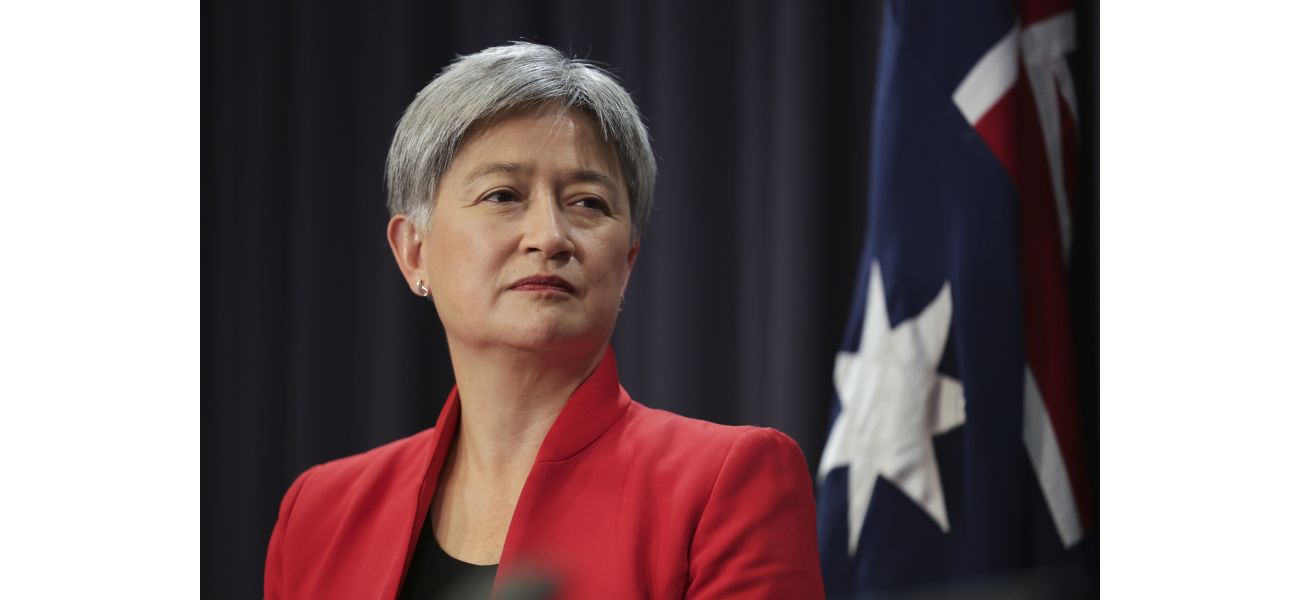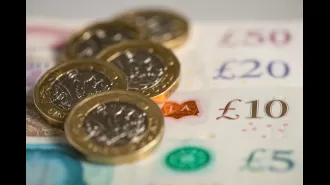Wong reacts to warrants issued for Netanyahu and Hamas leaders.
Netanyahu's wanted status and the potential impact on peace talks are a complicated consequence of the ruling.
November 21st 2024.

Foreign Minister Penny Wong has released a statement in response to the International Criminal Court's recent decision to issue arrest warrants for Israeli Prime Minister Benjamin Netanyahu, his former defense minister, and several Hamas officials. The ICC has accused them of committing war crimes and crimes against humanity during the war in Gaza and the 2023 attacks that led to Israel's offensive in the Palestinian territory.
In her statement, Wong emphasized Australia's respect for the independence of the ICC and its important role in upholding international law. She also reiterated the need for all parties involved in the conflict to comply with international humanitarian law and protect civilians, hostages, and aid workers.
Netanyahu, on the other hand, condemned the arrest warrants against him and his fellow suspects, stating that Israel rejects the "absurd and false actions" of the ICC. He also defended Israel's actions in Gaza, claiming that their war was just.
However, the ICC's decision has turned Netanyahu and the other suspects into internationally wanted individuals, which may further isolate them and complicate efforts to negotiate a cease-fire. Despite this, the practical implications of the warrants may be limited as Israel and the United States, their major ally, are not members of the court. Additionally, several of the Hamas officials named in the warrants have already been killed in the conflict.
Both Netanyahu and the United States have criticized the ICC's Chief Prosecutor Karim Khan for the warrants, with the US expressing support for Israel's right to defend itself against Hamas. In response, Hamas has also condemned the request for warrants.
The three-judge panel responsible for issuing the warrants stated that there are reasonable grounds to believe that Netanyahu and his former defense minister deliberately deprived the civilian population in Gaza of essential items such as food, water, medicine, fuel, and electricity. The court also issued a warrant for Hamas leader Mohammed Deif for his involvement in the 2023 attacks.
Two other senior Hamas figures, Yahya Sinwar and Ismail Haniyeh, were initially named in the ICC's request for warrants, but the prosecutor later withdrew their names after they were killed in the conflict. In September, the Israeli Foreign Ministry submitted two legal briefs challenging the ICC's jurisdiction and arguing that the court did not give Israel the opportunity to investigate the allegations before issuing the warrants.
Despite the warrants, it is unlikely that any of the suspects will face trial in The Hague anytime soon, as the ICC has no police force to enforce the warrants and relies on cooperation from its member states. However, the threat of arrest could make it difficult for Netanyahu and his former defense minister to travel abroad, as member countries are required to detain suspects if they set foot on their soil.
It is worth noting that the ICC is a court of last resort, only prosecuting cases when domestic law enforcement authorities are unable or unwilling to do so. As a non-member state, Israel has struggled to investigate itself in the past, according to rights groups. While the warrants may pose a challenge for the suspects' international travel, it is important to remember that the court lacks a mechanism to enforce its warrants.
In her statement, Wong emphasized Australia's respect for the independence of the ICC and its important role in upholding international law. She also reiterated the need for all parties involved in the conflict to comply with international humanitarian law and protect civilians, hostages, and aid workers.
Netanyahu, on the other hand, condemned the arrest warrants against him and his fellow suspects, stating that Israel rejects the "absurd and false actions" of the ICC. He also defended Israel's actions in Gaza, claiming that their war was just.
However, the ICC's decision has turned Netanyahu and the other suspects into internationally wanted individuals, which may further isolate them and complicate efforts to negotiate a cease-fire. Despite this, the practical implications of the warrants may be limited as Israel and the United States, their major ally, are not members of the court. Additionally, several of the Hamas officials named in the warrants have already been killed in the conflict.
Both Netanyahu and the United States have criticized the ICC's Chief Prosecutor Karim Khan for the warrants, with the US expressing support for Israel's right to defend itself against Hamas. In response, Hamas has also condemned the request for warrants.
The three-judge panel responsible for issuing the warrants stated that there are reasonable grounds to believe that Netanyahu and his former defense minister deliberately deprived the civilian population in Gaza of essential items such as food, water, medicine, fuel, and electricity. The court also issued a warrant for Hamas leader Mohammed Deif for his involvement in the 2023 attacks.
Two other senior Hamas figures, Yahya Sinwar and Ismail Haniyeh, were initially named in the ICC's request for warrants, but the prosecutor later withdrew their names after they were killed in the conflict. In September, the Israeli Foreign Ministry submitted two legal briefs challenging the ICC's jurisdiction and arguing that the court did not give Israel the opportunity to investigate the allegations before issuing the warrants.
Despite the warrants, it is unlikely that any of the suspects will face trial in The Hague anytime soon, as the ICC has no police force to enforce the warrants and relies on cooperation from its member states. However, the threat of arrest could make it difficult for Netanyahu and his former defense minister to travel abroad, as member countries are required to detain suspects if they set foot on their soil.
It is worth noting that the ICC is a court of last resort, only prosecuting cases when domestic law enforcement authorities are unable or unwilling to do so. As a non-member state, Israel has struggled to investigate itself in the past, according to rights groups. While the warrants may pose a challenge for the suspects' international travel, it is important to remember that the court lacks a mechanism to enforce its warrants.
[This article has been trending online recently and has been generated with AI. Your feed is customized.]
[Generative AI is experimental.]
0
0
Submit Comment





